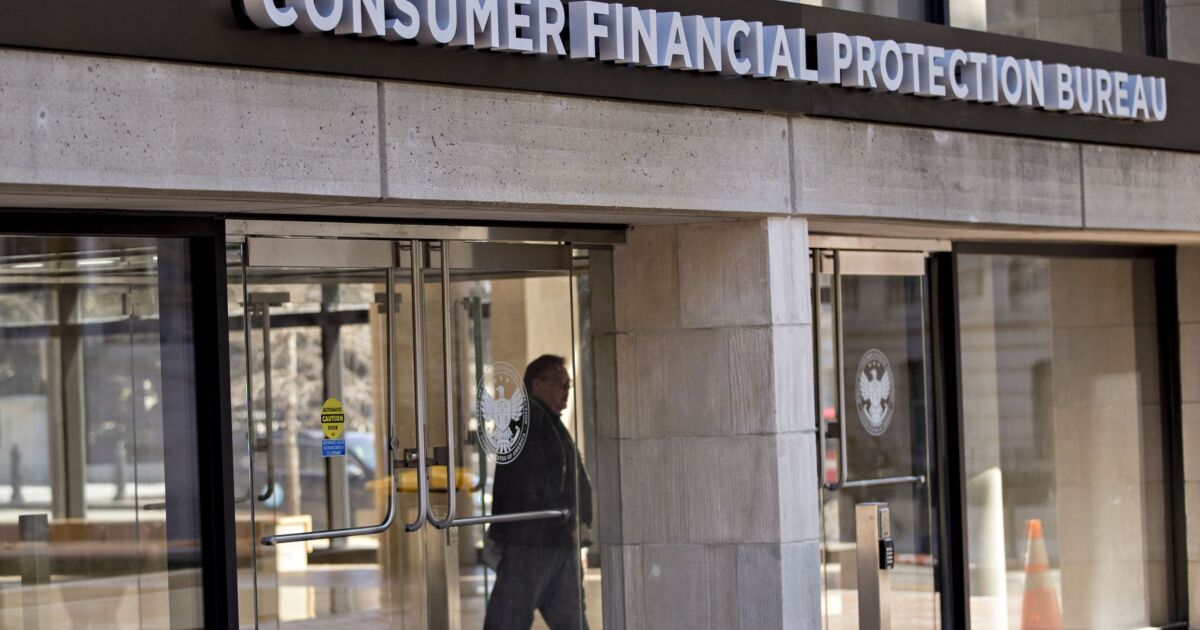
Banks have recently gotten hints about specific types of fair-lending cases the Consumer Financial Protection Bureau may be interested in pursuing, according to industry executives and attorneys.
Issues raised in questionnaires the CFPB has sent to banks in recent months include: how public assistance is counted in the loan origination and loan servicing processes; how loans are written to women on maternity leave; and whether any loans are securitized by property on tribal lands.
Other questions have dealt with how customers who have limited English proficiency are treated, and whether, when seeking a loan, same-sex couples and opposite-sex couples are asked different questions regarding their income.
The questions appear to signal that the CFPB is interested in fair-lending issues that go beyond racial discrimination in mortgages and auto lending, which is where enforcement resources have often been focused in the past.
Groups of borrowers who have traditionally gotten less attention from regulators — including same-sex couples, pregnant women and government assistance recipients — could be drawing more focus.
“These are very broad, very general questions that are targeted on very specific things,” said Aaron Rykowski, chief compliance officer at Wesbanco Bank, a $17 billion-asset institution in Wheeling, West Virginia.
Rykowksi, whose comments came at a recent event hosted by the Consumer Bankers Association, said the questions may indicate that the bureau is casting a wide net for problems. “People are getting letters, inquiries, they're not formal exams, per se,” he noted.
In remarks last fall, CFPB Director Rohit Chopra vowed that the agency would work with not only federal, state and local governments, but also tribal officials, to address redlining. At the same time, Chopra raised concerns about bias stemming from the use of algorithms in loan decisions.
The CFPB regulates many banks and credit unions over their compliance with the Equal Credit Opportunity Act, which bans discrimination against prospective borrwers on the basis of race, color, religion, national origin, sex, marital status, age and whether an applicant has received income from a public assistance program.
A CFPB spokesperson did not immediately provide comment for this article.
The Consumer Bankers Association said in a written statement that the group welcomes the opportunity to meet with the CFPB to advance what it described as a shared objective of protecting all consumers.
While the CBA said that banks are committed to responding to requests from the CFPB in a comprehensive and timely way, it also indicated concern about some of the bureau’s questions. “In some instances, overly broad language and unrealistic deadlines can limit bank’s’ ability to adequately provide the Bureau with thorough answers,” the trade group said in its statement.
At the CBA conference in early March, bank executives said the issue of how lenders count public assistance as income could take a front seat in the minds of regulators who may want a closer look at loans made and serviced during the COVID-19 pandemic, when the federal government was sending out billions of dollars in aid.
How banks treat consumers with limited ability to speak and understand English surfaced in the bureau’s exam procedures for “unfair, deceptive, or abusive acts or practices,” released on March 16. Specifically, the bureau said it will look at how call centers — whether operated by a bank or a third party on behalf of a bank — provide options to these borrowers.
Britt Faircloth, fair banking officer at the $43.4 billion-asset Valley National Bancorp in New York, warned that banks receiving the questionnaires should not infer that the bureau’s staff is “phoning it in.”
“Your responses are important,” Faircloth said at the CBA event. “And if your response indicates a problem, you're going to be getting a call back, and you're going to be getting more of a focus there.”
Faircloth added that banks should “be really mindful” if their loan originators are asking for more in-depth documentation from same-sex couples than they are from opposite-sex couples who are seeking financing.
“I actually expect that to become a very, very big deal,” Faircloth said.
Michelle Rogers, a lawyer who is a partner at Cooley, said that the questionnaires and other documentation from the CFPB show that Chopra may be stretching fair-lending laws to root out discrimination in areas where regulators have not previously paid much attention.
“This director in particular is focused on if you're being unfair, if you're engaging in pricing practice that is impacted on the basis of a protected class,” Rogers said at the CBA conference.



